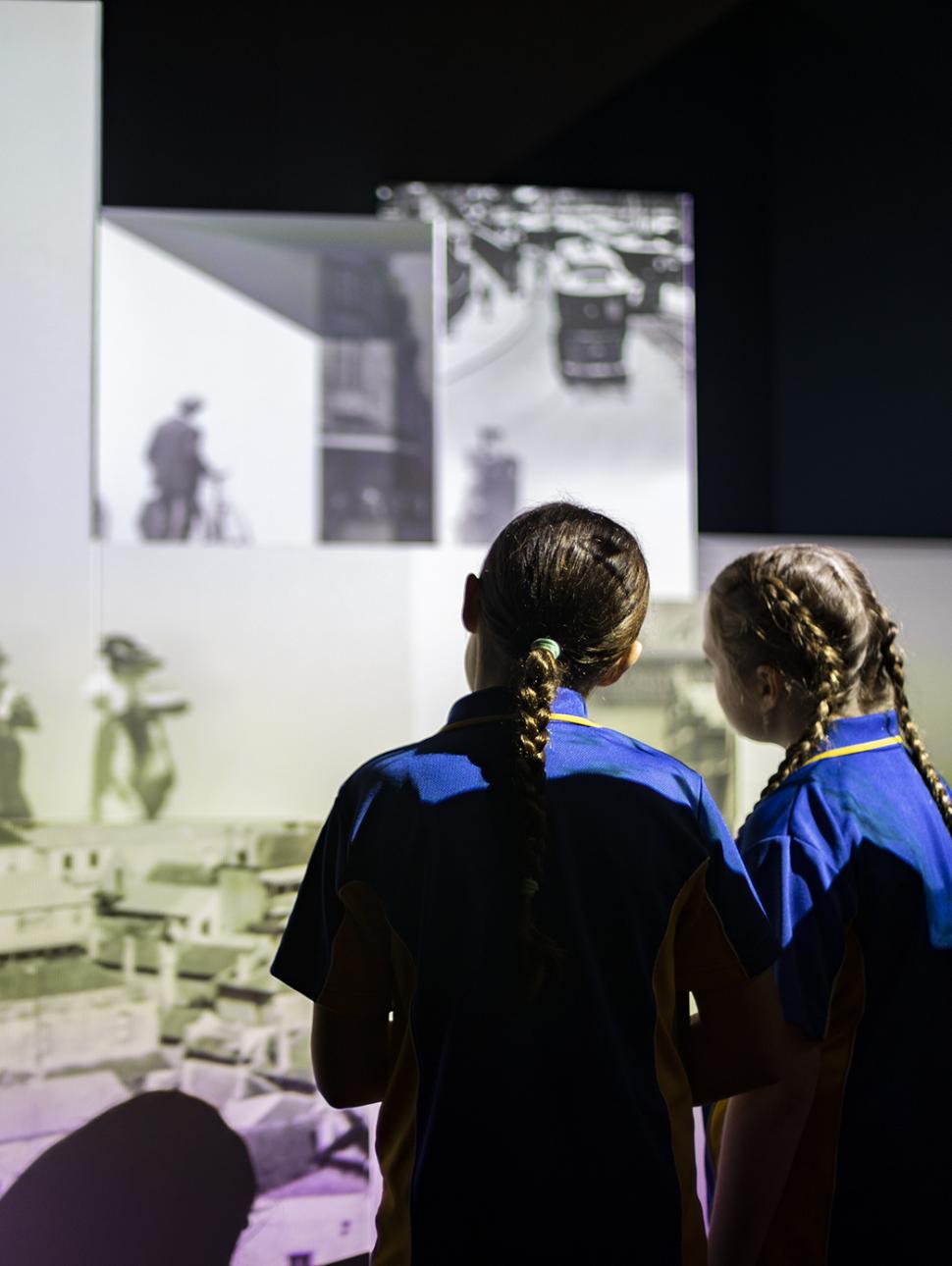
Cultural Collisions
Dates
Weekdays during school term | 10am and 12.30pm
$280 per group (up to 32 students)
Learn about the early encounters and collisions of culture between the Aboriginal peoples of Western Australia and a variety of newcomers.
Students critically examine First Contact experiences between Aboriginal peoples in our state, investigating the history of encounters with various visitors through industry, trade and colonisation. Evidence of these diverse relationships and their cultural, social, and economic consequences are examined through objects within the Connections and Ngallang Koort Boodja Wirn galleries.
Please be aware prior to booking that this program contains some challenging content, including the story of the Pinjarra Massacre.
Student experience
Students will:
- Recognise the diversity of pre-colonial and colonial relationships and encounters with Aboriginal peoples
- Hear first-contact stories about local Aboriginal peoples and British, French and Makassans in the Ngalang Koort Boodja Wirn and Connections galleries.
- Identify legacies of these early relationships, reflecting on their own attitudes and learning
- Record their findings on a sheet to take back to school
Program feedback
"It was very in depth and detailed. The students were very engaged."
Curriculum links
This program links to the following strands of the Western Australian Curriculum:
Year 4
First contacts
- The diversity and longevity of Australia's first peoples and the ways they are connected to country/place (e.g. land, sea, waterways, skies) and their pre-contact ways of life (ACHASSK083)
- The nature of contact between Aboriginal and/or Torres Strait Islander Peoples and others (e.g. the Macassans, Europeans) and the impact that these interactions and colonisation had on the environment and people's lives (ACHASSK086)
Year 5
The Australian colonies
- The patterns of colonial development and settlement (e.g. geographical features, climate, water resources, transport, discovery of gold) and how this impacted upon the environment (e.g. introduced species) and the daily lives of the different inhabitants (e.g. convicts, free settlers, Aboriginal and Torres Strait Islander Peoples) (ACHASSK107)
- The economic, social and political impact of one significant development or event on a colony and the potential outcomes created by 'what if…?' scenarios (e.g. frontier conflict; the gold rushes; the Eureka Stockade; the Pinjarra Massacre; the advent of rail; the expansion of farming; drought) (ACHASSK107)
Year 6
A diverse and connected world
- Australia's connections with countries (e.g. trade, migration, tourism, aid, education, defence, sport) and how these connections change people and places (ACHASSK141).
Australia as a nation
- Experiences of Australia's democracy and citizenship, including the status and rights of Aboriginal people and/or Torres Strait Islander Peoples, migrants, women and children (ACHASSK135).
All facilitated workshops are led by the Museum’s experienced Learning and Engagement team and have been curated using the Museum’s unique resources to provide a deeper learning experience in our specialist subject areas.
Your booking for a facilitated workshop will include all materials and activities for the duration of the program with no prior preparation required.
As part of all facilitated workshop bookings, you are welcome to explore the rest of the Museum free of charge pre or post workshop and do not need to make any additional bookings to do so. WA Museum Boola Bardip is open daily from 9.30am to 5pm, with last entry at 4pm.